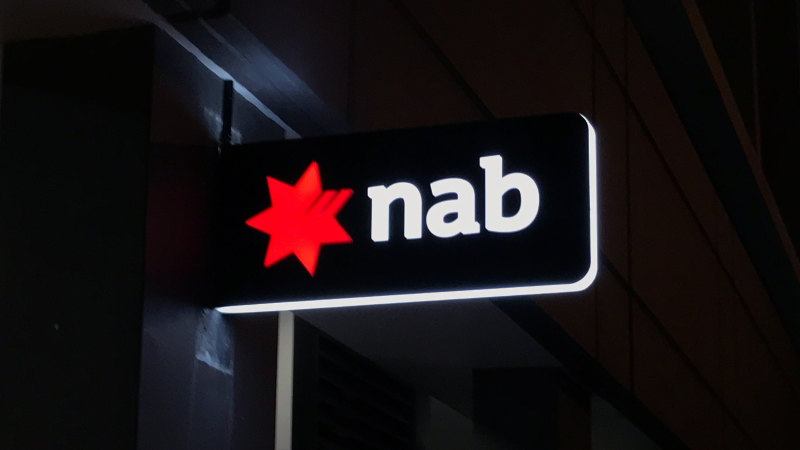The National Australia Bank is phasing out over-the-counter payments for credit cards as part of a national plan to shift banking services online and reduce its branch network, sparking concerns vulnerable customers will be more exposed to scams.
In December, NAB launched a pilot of the new policy, which “encourages” customers to pay off their credit cards using internet banking, ATMs or post offices. The policy was trialled at branches with the highest number of customers making over-the-counter payments, with plans to roll out the policy nationwide from February.
NAB is banning customers from making credit card payments in branches.Credit:
It comes as major banks close branches around the country, a process accelerated by the pandemic as more customers shift to online banking. However, the digitisation of banking has been criticised by consumer advocates for leaving regional communities behind and vulnerable customers more exposed to scams.
Internal training documents, obtained by The Age and Sydney Morning Herald, show NAB staff were provided with a range of expected questions from customers about the new policy, including “What happens if a customer gets upset and threatens to take their business away from NAB?” and “What happens if the customer doesn’t have the internet at home or a smartphone?”
NAB staff were told to explain the new policy was in customers’ best interests because it allows them to “experience the benefits of options that are faster, simpler and more convenient and secure”.
The documents show NAB was prepared to be accused of neglecting vulnerable customers, including the elderly and non-English speaking, and encouraged staff to “use their discretion as to the most appropriate way” to support the customer.
Other training documents indicate the most common criticisms of online banking include a lack of trust in internet banking and frequent service outages. In response, NAB instructed staff to “give customers time to express their intent and demonstrate active listening skills” and use “genuine empathy” to demonstrate “that we understand customers’ viewpoint”.
NAB retail executive Krissie Jones said in a statement staff were encouraging customers to bank online so branch staff could “spend more time on more complex customer conversations, including supporting customers with education on evolving digital channels”.
“Our branch teams are proactively educating, supporting and redirecting the small number of customers who repay their credit card over the counter to digital and Bank@Post channels,” she said.
The major bank has run an internal “game” to encourage staff to promote digital products and transition customers to internet-only services. Finance Sector Union national secretary Julia Angrisano said NAB had set targets for staff to reduce over-the-counter transactions, which had resulted in staff intercepting customers at the door to direct them to self-service systems.
“If you don’t reach that target, you’re facing a performance program,” she said. “Workers are being wedged between performance targets … and essentially the consequences of that is they’re facing the demise of their own jobs as their branches are closing.”
Ms Angrisano criticised the banks’ claim that digital transition was driven by customer needs. “What sits behind this are deliberate strategies by the bank to push customers onto digital, out the door.”
This masthead has previously revealed the major banks have fiercely fought regulations to force banks to introduce mechanisms to protect customers from scams, a rapidly rising problem estimated to cost Australians $6 billion per year.
Consumer Action Law Centre chief executive Gerard Brody said the banking industry’s push towards digital-only services will further expose customers to scams.
“There are significant risks when it comes to scams with online transactions, and banks need to be taking care to protect customers … particularly those that aren’t comfortable with online transactions.”
The Morning Edition newsletter is our guide to the day’s most important and interesting stories, analysis and insights. Sign up here.
Most Viewed in Business
From our partners
Source: Read Full Article

